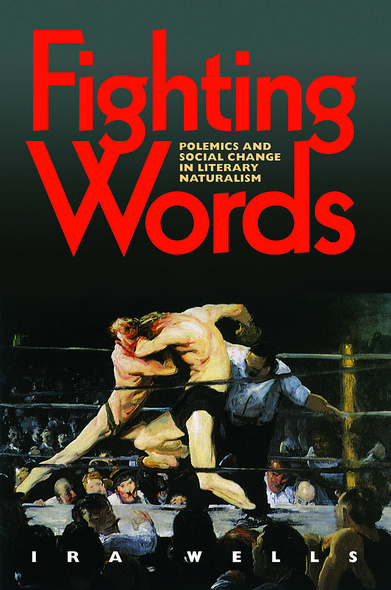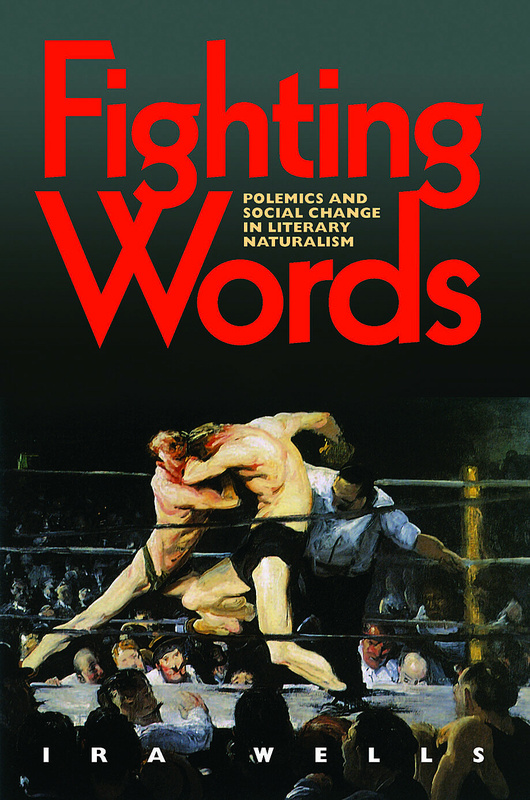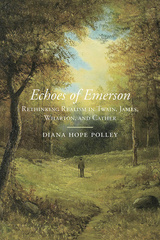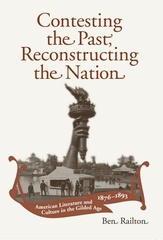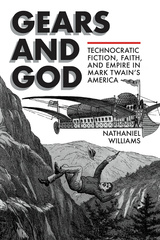Fighting Words
Polemics and Social Change in Literary Naturalism
By Ira Wells
University of Alabama Press
An entirely new understanding of what literary naturalism is and why it matters
Ira Wells, countering the standard narrative of literary naturalism’s much-touted concern with environmental and philosophical determinism, draws attention to the polemical essence of the genre and demonstrates how literary naturalists engaged instead with explosive political and cultural issues that remain fervently debated today. Naturalist writers, Wells argues in Fighting Words, are united less by a coherent philosophy than by an attitude, a posture of aggressive controversy, which happens to cluster loosely around particular social issues. To an extent not yet appreciated, literary naturalists took controversial—and frequently contrarian—positions on a wide range of literary, political, and social issues.
Frank Norris, for instance, famously declared the innate inferiority of female novelists and frequently wrote about literature in tones suggestive of racial warfare. Theodore Dreiser once advocated, with deadly earnestness, a program of state-run infanticide for disabled or unwanted children. Richard Wright praised the Stalin-Hitler agreement of 1939 as “a great step toward peace.” While many of their arguments were irascible, attention-seeking, and self-consciously inflammatory, the combative spirit that fueled these outbursts remains central to the canonical texts of the movement.
Wells considers Frank Norris’s The Octopus in light of the emerging discourses of environmentalism and ecological despoliation, and examines the issue of abortion in Theodore Dreiser’s An American Tragedy. A chapter on Richard Wright’s Native Son takes issue with traditional humanistic readings of its protagonist by analyzing the disturbing relationship between terrorism and lynching as a crime and punishment that resists formal incorporation into the law.
By highlighting the contentious rhetoric that infuses the canonical texts of literary naturalism, Fighting Words opens up a wide-ranging and interdisciplinary interrogation of racial, sexual, and environmental polemics in American culture.
Analyzing primarily the works of Frank Norris, Theodore Dreiser, and Richard Wright, Wells (Univ. of Toronto, Mississauga) argues that naturalism was conceived within the American culture of polemic. Although his focus is on the aforementioned naturalists, he also insists on the dialectical relationship shared by naturalist writers and critics; in fact, he offers H. L. Mencken as the 'lynchpin of naturalism.' In contrast to literary historians who assert that naturalists were united by their views on such issues as determinism and evolution, Wells claims that the naturalists did not share a coherent philosophy but instead were united through a shared 'polemical spirit' that featured a tendency to channel passion through the weapon of prose. He examines his subjects' early polemic work as well as Norris's The Octopus in the context of environmentalism, Dreiser's An American Tragedy in the context of abortion, and Wright's Native Son in the context of terrorism. In addition to astute readings of these texts, Wells offers a valuable overview of the genre's critical tradition. Summing Up: Recommended. All readers.'
—CHOICE
Fighting Words is written in graceful prose and is an outstanding addition to the press’s Studies in American Literary Realism and Naturalism series.’
—Gary Scharnhorst, author of more than thirty monographs or collections, including Sinclair Lewis Remembered
‘Fighting Words elegantly argues the significance of polemics in three naturalist authors—Norris, Dreiser, and Wright—who were strongly influenced by H. L. Mencken’s notion of using words to ‘fight.’ It is impressive.’
—Jeanne Campbell Reesman, author of Jack London’s Racial Lives: A Critical Biography and Speaking the Other Self: American Women Writers
Ira Wells is an assistant professor in the Department of English and Drama at the University of Toronto, Mississauga. He has published refereed articles in American Quarterly, University of Toronto Quarterly, and Popular Music and Society.

